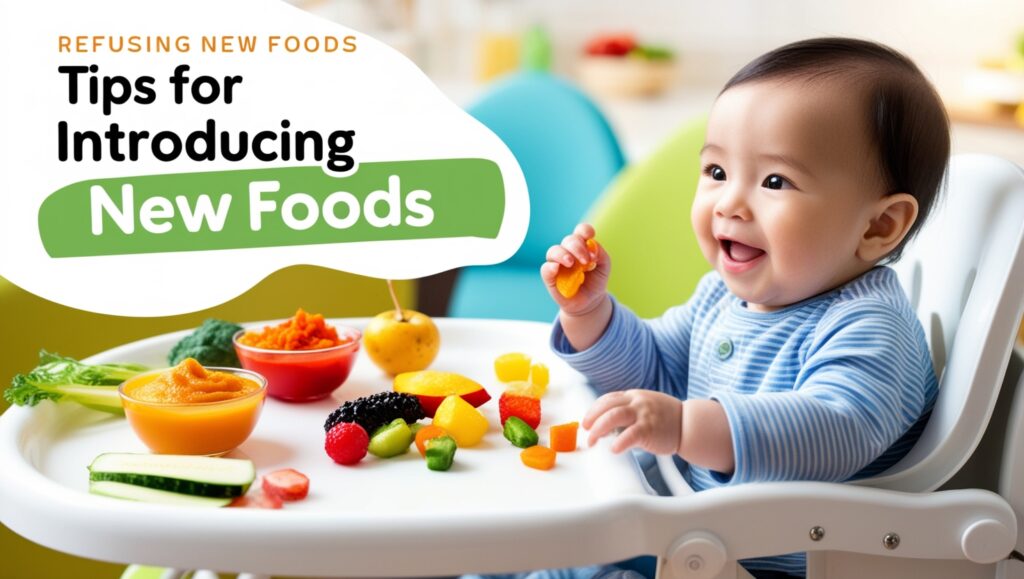Feeding your baby is an exciting milestone that plays a crucial role in their growth and development. It’s also a wonderful opportunity to bond and create positive food experiences. Here are some expert tips to ensure your baby’s feeding journey is smooth, healthy, and enjoyable.
1. Start with a Feeding Schedule
Establish a consistent feeding routine that aligns with your baby’s hunger cues. Regular mealtimes help your baby feel secure and develop healthy eating habits.
2. Offer a Rainbow of Foods
Introduce a variety of colorful fruits, vegetables, and grains to ensure your baby gets a wide range of nutrients. Variety not only provides balanced nutrition but also helps develop their palate.
3. Avoid Distractions During Mealtime
Keep screens, toys, and other distractions away during feeding. A calm and focused environment allows your baby to concentrate on eating and better recognize their hunger and fullness cues.
4. Use Baby-Led Weaning or Spoon-Feeding – or Both!
Every baby is unique. Some may enjoy exploring finger foods on their own (baby-led weaning), while others may prefer purees fed by a spoon. It’s okay to combine both methods based on your baby’s preferences.
5. Be a Role Model
Babies often mimic what they see. Eating healthy foods in front of your baby encourages them to try new things and develop a positive attitude toward mealtime.
6. Watch for Signs of Readiness
Before introducing solids, ensure your baby is ready. Look for signs like being able to sit up, showing interest in food, and losing the tongue-thrust reflex.
7. Stay Hydrated
As solids are introduced, make sure your baby stays hydrated by offering small amounts of water alongside meals (after six months of age).
8. Introduce Allergens Early
Introduce common allergens like peanuts, eggs, and dairy in small amounts, one at a time, while observing for any reactions. This approach may help reduce the risk of allergies.
9. Keep It Positive
Avoid pressuring your baby to eat or making mealtime a battleground. Celebrate small wins and keep the atmosphere light and fun.
10. Incorporate Iron-Rich Foods
Iron is vital for your baby’s brain development. Include iron-rich options like pureed meats, lentils, spinach, or fortified cereals in their diet.
Recipe Spotlight: Avocado and Banana Mash
Ingredients:
- ½ ripe avocado
- ½ ripe banana
Instructions:
- Mash the avocado and banana together until smooth.
- Serve immediately as a creamy, nutrient-packed snack or meal.
Benefits: Avocados provide healthy fats for brain development, while bananas offer natural sweetness and potassium.
Quick FAQs for Baby Feeding
Q: When should I start solids?
- Most babies are ready for solids around 6 months, but consult your pediatrician to confirm the timing.
Q: How do I know if my baby is full?
- Signs of fullness include turning their head away, closing their mouth, or pushing food away.
Q: How can I handle picky eating?
- Continue offering a variety of foods without pressure. Sometimes, it takes multiple exposures for babies to accept a new food.
The Goal of Happy Mealtimes
Feeding your baby isn’t just about nutrition—it’s about fostering curiosity, building trust, and creating lifelong healthy habits. Remember, patience and persistence are key.
Visit BabyFeasts.com for more feeding tips, baby recipes, and inspiration to support your baby’s feeding journey!
Turn mealtime into a joyful adventure with BabyFeasts!

